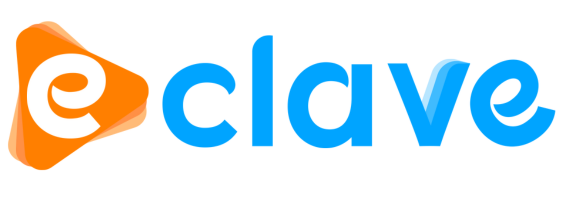Ideal Study Abroad Timeline for Engineering Students: A Step-by-Step Guide
Planning to study abroad as an engineering student is exciting but requires strategic planning and preparation. At Eclave, we specialize in guiding students to align their academic and career goals with study abroad opportunities. To help you get started, here’s a comprehensive timeline to make the process smooth and manageable.
1. Initial Research and Self-Assessment (18–24 Months Before)
Goal: Define interests, set academic goals, and start researching programs.
- Self-Assessment: Identify areas of engineering that align with your passion—whether it’s civil, mechanical, electrical, computer, or another field. At Eclave, we offer a 7-dimensional career assessment that can clarify your strengths and guide your program choices.
- Research Universities and Programs: Make a list of potential countries, universities, and engineering programs that match your goals. Consider each location’s industry opportunities, especially in fields related to your interests, as this can play a significant role in career growth.
- Financial Planning: Start assessing financial requirements, such as tuition fees, living expenses, scholarships, and funding options. Early financial planning can open doors to scholarships and funding resources.
2. Test Preparation and Building Your Profile (12–18 Months Before)
Goal: Prepare for standardized tests and build an impressive academic and extracurricular profile.
- Standardized Tests: Most engineering programs abroad require tests like GRE, TOEFL, or IELTS. Begin preparation early, especially for competitive exams like the GRE. Eclave offers test preparation for GRE, GMAT, SAT, and language tests, ensuring you’re equipped for high scores.
- Profile Building: Boost your resume with relevant projects, internships, or research papers that showcase your engineering skills and interests. Volunteering, leadership roles, and club memberships add value to your profile and demonstrate a well-rounded personality.
- Networking: Connect with alumni, professors, and professionals in the field to gain insights into programs and universities. At Eclave, our global network and alumni connections can provide useful contacts and guidance.
3. Shortlisting Universities and Gathering Documents (9–12 Months Before)
Goal: Finalize a list of universities and gather necessary application documents.
- Shortlist Universities: Narrow down your choices based on program offerings, faculty, research facilities, and post-graduate opportunities. Select a balance of “reach,” “target,” and “safe” schools.
- Document Preparation: Gather essential documents, including transcripts, letters of recommendation (LORs), statement of purpose (SOP), resume, and portfolio (if applicable). Craft your SOP to reflect your engineering goals, skills, and motivation for studying abroad.
- Recommendation Letters: Request LORs from professors or employers who know your strengths in engineering. Give them adequate time and context about the program so they can tailor the recommendations accordingly.
4. Application Submission (6–9 Months Before)
Goal: Complete and submit all applications on time.
- Stay Organized: Track each university’s application deadlines, requirements, and formats. Missing a deadline can set back your entire plan.
- Application Fee and Financial Aid Forms: Submit applications along with financial aid forms if needed. Many universities offer need-based or merit-based scholarships, so ensure you meet any criteria.
- Submit Early: Many universities offer early deadlines for scholarships or merit consideration. Submitting ahead of time not only secures your place but also maximizes your funding chances.
5. Visa Process and Financial Planning (3–6 Months Before)
Goal: Secure your visa and finalize financial arrangements.
- Apply for Visas: Begin the visa application process as soon as you receive your acceptance letter. Collect necessary documents, schedule interviews, and ensure all forms are accurately completed.
- Scholarships and Financial Aid: Confirm any scholarships and arrange for funds. Many banks offer educational loans, and some universities provide installment options for tuition payments.
- Housing and Insurance: Secure accommodation either through the university or private options. Additionally, arrange for health insurance as required by most countries for international students.
6. Pre-Departure Preparations (1–2 Months Before)
Goal: Finalize travel and settle necessary tasks before departure.
- Arrange Travel: Book flights and arrange airport pickups if available. Familiarize yourself with the local climate, culture, and any essential information about your destination.
- Pack Smart: Pack essentials, including academic materials, electronics, cultural necessities, and suitable attire for the weather. Don’t forget to keep your documents, like passport, visa, and acceptance letters, handy.
- Pre-Departure Orientation: At Eclave, we provide orientation sessions covering cultural differences, academic expectations, and tips on adjusting to a new environment, ensuring students are well-prepared for their journey abroad.
7. First Month Abroad: Settling In
- Adapt to University Life: Attend orientation, meet faculty, and connect with peers to start building a support network.
- Stay Organized: Familiarize yourself with your course curriculum, key academic dates, and available resources like tutoring, libraries, and labs.
- Cultural Adjustment: Participate in campus activities to ease the transition and make the most of your international experience.
Conclusion
The journey of studying abroad requires diligence, preparation, and guidance. This timeline can serve as a reliable roadmap for your application process. At Eclave, we support students at each step, from choosing the right program to making pre-departure arrangements. By following this timeline and utilizing our resources, you’ll be well-prepared to embark on your study abroad journey and set the foundation for a successful engineering career.
Ready to take the next step? Reach out to Eclave for personalized guidance on your study abroad journey

